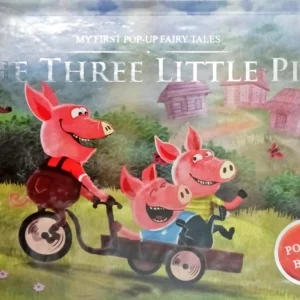Nurturing Young Minds: The Power of Early Learning and Development
“The first five years have so much to do with how the next 80 turn out.” – Bill Gates
The early years of a child’s life lay the foundation for everything that follows. From the moment they are born, children begin absorbing the world around them — forming connections, responding to stimuli, and slowly shaping their understanding of life. This critical window of growth, known as early childhood, is not just about milestones like walking or talking — it’s about building brains, emotions, social skills, and a lifelong love for learning.
Why Early Learning Matters
The brain develops at an astonishing pace during the first few years. In fact, 90% of a child’s brain growth happens before the age of five. This period shapes cognitive abilities, emotional intelligence, language skills, and even future success in school and life. Early learning experiences are not simply academic — they help children develop curiosity, resilience, and self-confidence.
Key Pillars of Early Childhood Development
1. Cognitive Growth
Activities like puzzles, storytelling, and identifying colors and shapes stimulate thinking and problem-solving. These help lay the groundwork for memory, attention span, and basic reasoning.
2. Language and Communication
Children begin understanding language much before they can speak. Talking to them, reading aloud, or singing rhymes boosts their vocabulary and listening skills.
3. Social and Emotional Skills
Through play, children learn to take turns, express emotions, and build relationships. These skills are crucial for teamwork, empathy, and future mental well-being.
4. Motor Skills
From stacking blocks to holding crayons, fine and gross motor activities develop physical coordination and control. These are essential for everyday tasks like dressing, eating, and writing.
Role of Parents and Caregivers
No fancy toy or app can replace the impact of a caring adult. Responsive parenting — where caregivers listen, respond, and engage — helps build secure attachments and a sense of safety in children. Simple routines like bedtime stories, shared meals, and outdoor play offer powerful learning opportunities.
The Shift Toward Screen-Free, Hands-On Learning
While technology has its place, overexposure to screens in early years can affect attention spans, sleep, and creativity. That’s why educators and parents alike are returning to printable worksheets, tactile toys, interactive books, and real-world experiences.
These alternatives promote active engagement — children use their hands, move their bodies, and think critically. Brands like Medha Minds are revolutionizing this space with printable e-workbooks, soft books, and creative kits that spark learning without screens.
How to Support Early Learning at Home
-
Talk constantly — describe what you’re doing, ask questions, and encourage your child to respond.
-
Read together daily — even 10 minutes a day can make a huge difference.
-
Encourage exploration — let them touch, feel, and experiment with safe objects.
-
Offer choices — this builds decision-making and independence.
-
Celebrate effort over outcome — praise their curiosity and perseverance.
Final Thoughts
Early learning is not about pushing academics but about unlocking potential through love, play, and connection. When we nurture young minds with care, creativity, and consistency, we don’t just prepare them for school — we prepare them for life.







